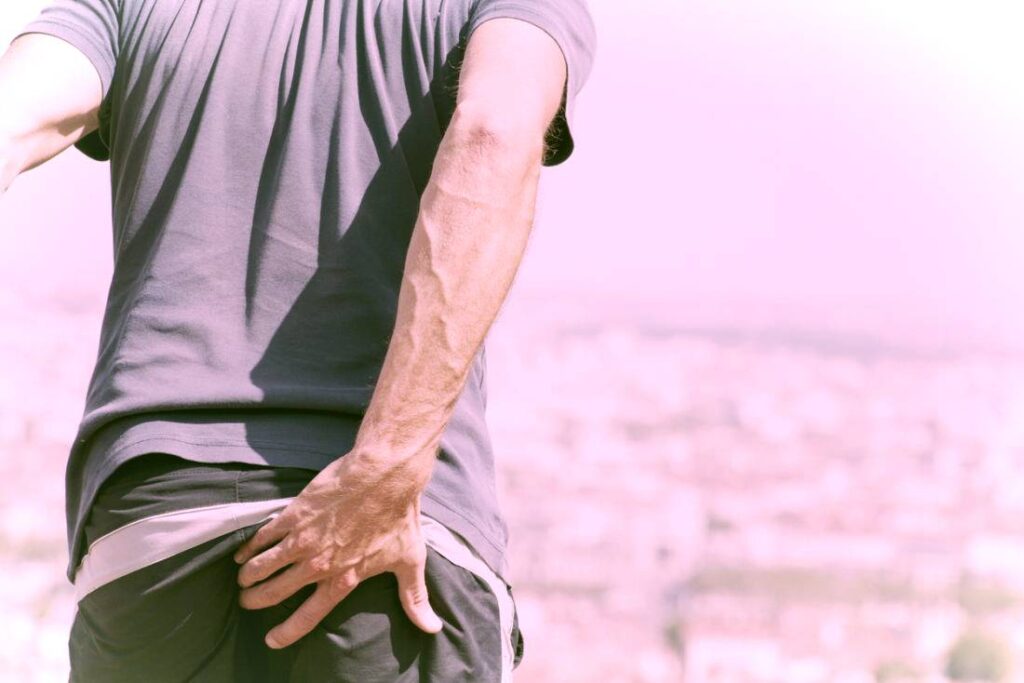Pain In Back Passage: Should You Be Worried? Three Signs You Could Have An Anal Fistula

Pain in your back passage is often due to some gastrointestinal issue that causes discomfort in the rectal region. It is a common problem. The anal pain must not be ignored as it can be a symptom of some other health condition.
What Causes Anal Pain?
- Inflammation in the bowel movement passage
- Blood in the stool
- Constipation
- Diarrhoea
- Injuries in the area
Reasons why it may be happening?
Mostly the cause of this pain can be an indicator anal fistula. This is likely as they have similar symptoms and causes.
What is an Anal Fistula?
An anal fistula is a connection between an abscess, a pus-filled tissue in the anus and the skin around the opening of the anus.
There are mucus-forming glands on the inside of the anus, which when clogged, develop abscesses. The clogging is a result of an infection or bacteria buildup. If the abscesses are left untreated, most of them grow on to become fistulas.
Some of the rare reasons for having a fistula can be health conditions that affect the bowel, tuberculosis and even sexually transmitted diseases.
How to identify if the anal pain is due to an anal fistula?
Symptoms of anal fistula
An anal fistula is accompanied by the following symptoms:
- Pain in the anal passage
- Pain when sitting, coughing or passing stool
- Swelling around the anus
- Redness around the anus
- Skin irritation around the anus
- Pus or blood passing with stool
- Foul smell around the anus
- Bowel incontinence i.e. difficulty controlling bowel movement
If you have developed a haemorrhoid, you will also feel lumps in or around your anus along with itchiness and pain around the anal region and not in the passage. The absence of the lumps would be a direct indication of your condition not being that of having developed piles. Moreover, piles do not cause pain. If it does, it is only for a severe complication which requires immediate surgery.
Causes of anal fistula
The anal fistula is caused due to bacterial infection on the anal passage, leading to pus-filled tissues known as abscesses. This infection can be treated by antibiotics. However, if it is left untreated, then it can lead to the formation of an anal fistula that can only be removed through surgery.
The infection occurs due to bacterial formations in the internal glands of the anus. It blocks the anal gland and the pus is collected in the cavity known as the abscess. When passing stool, sitting or coughing, the pain in the anal passage intensifies owing to this clogging.
In fact, one of the main indicators of anal fistula is this pain in the anal region. If it piles, you would not be experiencing pain and be able to feel the haemorrhoid easily (unless it is a more complicated type of piles).
Diagnosis of anal fistula
If any of the symptoms of an anal fistula or even just pain in the anal passage are noted, it is important to visit a doctor. Tackling the fistula at the abscess stage can prevent letting it turn into a fistula, which cannot be reduced via medication.
Doctors will ask preliminary questions regarding your bowel movements to find the cause for the anal pain. They can conduct a rectal examination. This will tell them whether or not there is a presence of an infection and an anal fistula. If a fistula is suspected, it is confirmed with either a proctoscopy (used to do imaging inside the anus), ultrasound, CT scan or MRI.
What next if it is an anal fistula?
An anal fistula can only be treated with surgery. The abscess, when left treated becomes a fistula, and if the fistula grows in size then the infection can worsen. There is no medication that can reduce the size of the fistula or dissolve it.
You should visit a doctor and get a diagnosis done if you are experiencing rectal pain. There is nothing to worry if you are diagnosed with anal fistula and require surgery. The procedure is short and the recovery time is also quite short. The main thing to remember is to take care of your digestive system and avoid constipation and diarrhoea as they can complicate the anal fistula.